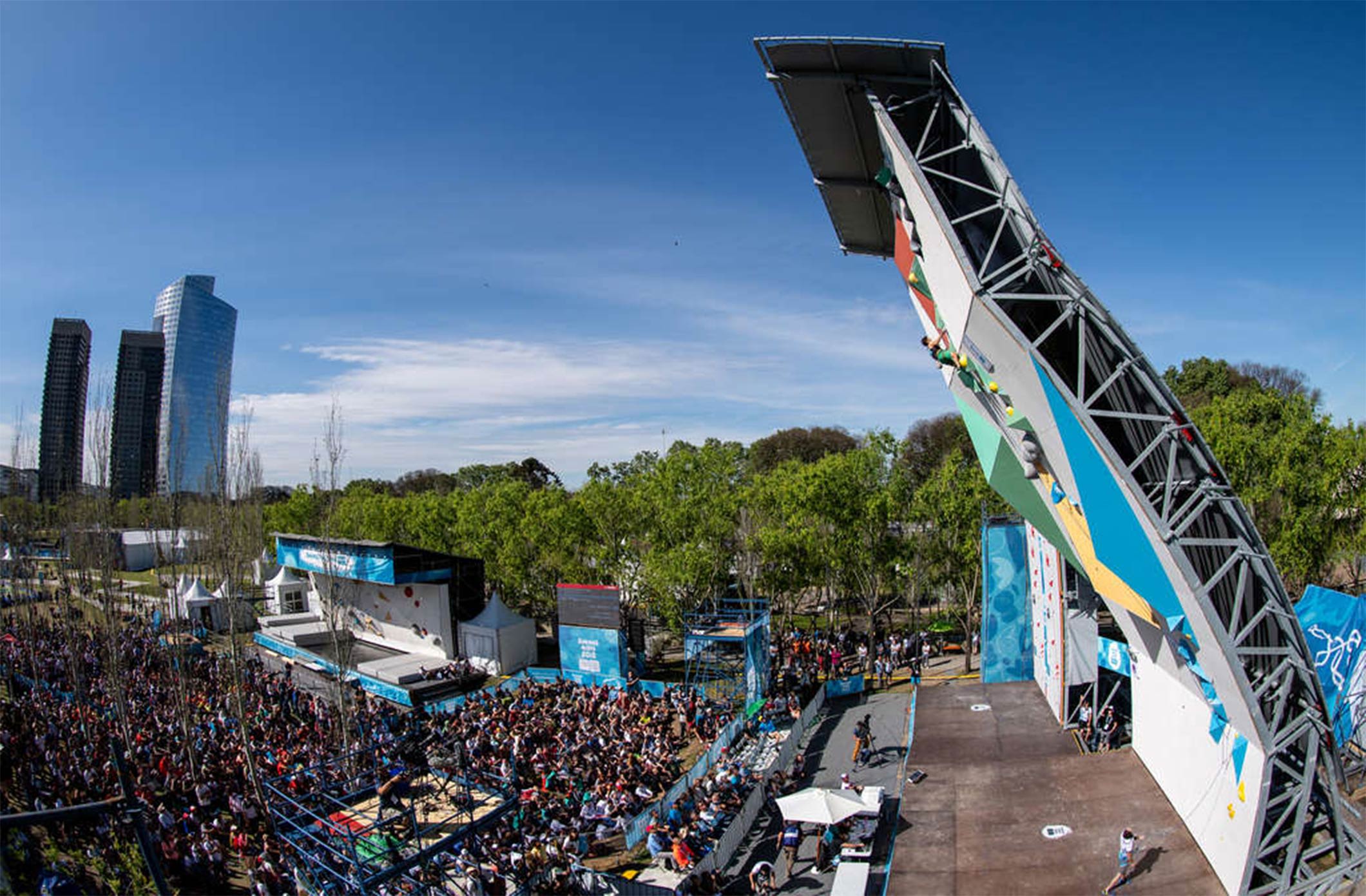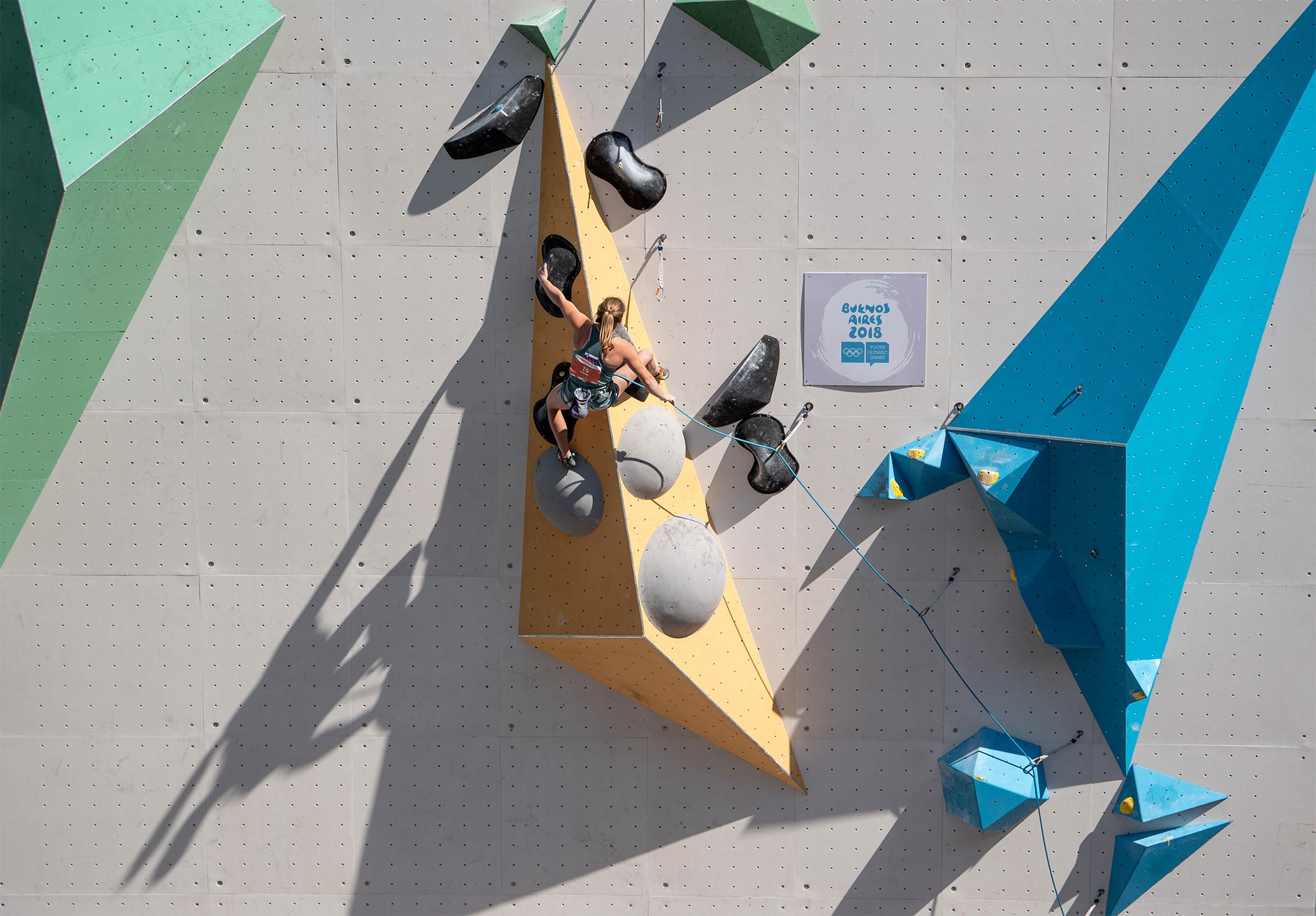Spectacular curtain-raiser for climbing’s Tokyo premiere
Packed crowds, thrilling action and a Japanese one-two to finish: sport climbing’s first time on an Olympic stage ahead of joining the programme for the Tokyo 2020 Games could hardly have gone better.
Frenchman Sam Avezou, winner of the bronze medal in the men’s combined, neatly summed up the feeling pervading Urban Park after four days of high-octane, sporting climbing action. “I’m so proud to be a climber,” Avezou said. “It was a great beginning, much bigger than I expected, so much cheering. There were many more people here than we usually see.”
The 2017 combined youth world champion finished behind Keita Dohi and Shuta Tanaka as the Japanese duo laid down a marker for their forthcoming home Olympic Games in 2020. “I am very impressed by them,” Avezou said. “The last time I competed with them was more than a year ago and they were not so strong in speed and bouldering but they have improved so much in one year. There are lots of Japanese climbers and they are all strong like them.”

The deafening cheering that greeted Dohi’s gold-medal winning climb up the 15m lead wall was music to the ears of Marco Maria Scolaris (ITA), president of the International Sport Climbing Federation (IFSC). “Everybody has won a gold medal,” said the Italian. “You never get bored with climbing. The sport has achieved so much in recent years; I can’t imagine what is going to happen after Tokyo.”
He was not the only one unable to stop their minds wandering toward Tokyo. “A lot of people will have seen this and will now be interested in climbing, that is so cool,” said Sandra Lettner (AUT), winner of the women’s combined and a contender for the Austrian senior team.
The 17-year-old completed a steady climb to the top of the lead wall to grab the gold away from compatriot Laura Lammer, who dropped from first to third after a costly slip in the final phase. Slovenia’s Vita Lukin, the 2018 lead world youth champion, split the Austrians, having conquered her nerves.
“I am often really not good at dealing with my nerves. I can climb really good but sometimes I am like, ‘What?’ and I freak out because I am too nervous,” Lukin said. “I am shaking and I just can’t get my head on the competition. But not today, luckily."

For Scolaris every day currently feels like a lucky one. “Even 11 years ago when we founded the IFSC, no one would have believed we would now be on the verge of an Olympic Games,” he said. “Everyone will benefit (from sport climbing joining the Olympic programme). We benefit from the traditional sports’ experience and they can benefit from the fresh air we bring. It’s a win-win for everyone.”
The 60-year-old acknowledged the significant amount he and his organisation have learned from their Buenos Aires 2018 experience, listing a desire to improve the visual presentation of the sport and expose the warm-up wall to the public as examples of changes they will make before the 2020 Games. “There will be no sleep between now and Tokyo,” he said. “Our commitment is never-ending.”